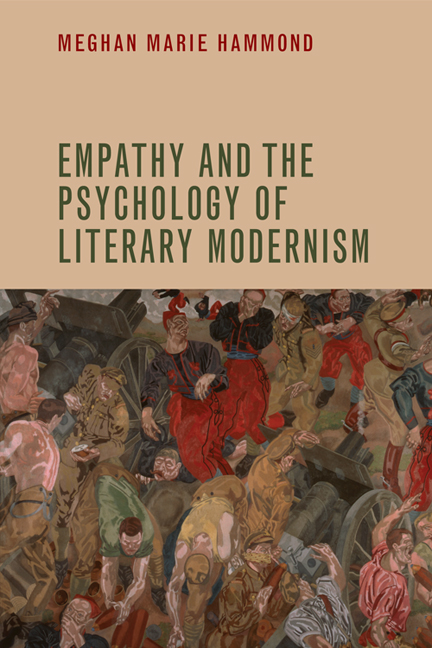Book contents
- Frontmatter
- Contents
- Acknowledgements
- Abbreviations
- Introduction: The Problem of Other Minds and the Fin de Siècle World
- 1 Into Other Minds: William and Henry James
- 2 Dorothy Richardson's Modernist Innovation
- 3 Communities of Feeling in Katherine Mansfield's Fiction
- 4 Empathy and Violence in the Works of Ford Madox Ford
- 5 Virginia Woolf and the Limits of Empathy
- Coda: New Structures of Fellow Feeling
- Bibliography
- Index
1 - Into Other Minds: William and Henry James
Published online by Cambridge University Press: 05 August 2016
- Frontmatter
- Contents
- Acknowledgements
- Abbreviations
- Introduction: The Problem of Other Minds and the Fin de Siècle World
- 1 Into Other Minds: William and Henry James
- 2 Dorothy Richardson's Modernist Innovation
- 3 Communities of Feeling in Katherine Mansfield's Fiction
- 4 Empathy and Violence in the Works of Ford Madox Ford
- 5 Virginia Woolf and the Limits of Empathy
- Coda: New Structures of Fellow Feeling
- Bibliography
- Index
Summary
The end of Henry James's 1897 novel What Maisie Knew illustrates his trademark distaste for neat resolutions. It closes with the enigmatic statement that Mrs Wix, one of the young protagonist's many caretakers, ‘still had room for wonder at what Maisie knew’ (H. James 1897: 275). That Maisie knows a great deal about the world around her is clear, but exactly what she knows is uncertain. Her mind remains, for both Mrs Wix and the reader, inaccessible. James leaves us here to ponder the conceptual problem of other minds that I touched on in the Introduction – how does one know the thoughts of another? That philosophical problem was a practical and professional matter for early experimental psychologists and a productive anxiety for Victorian and Edwardian fiction writers. Within the context of the new psychologies, the problem of other minds was most vividly articulated by Henry James's older brother, William James. In his monumental 1890 work The Principles of Psychology, William writes,
No thought even comes into direct sight of a thought in another personal consciousness than its own. Absolute insulation, irreducible pluralism, is the law […] Neither contemporaneity, nor proximity in space, nor similarity of quality and content are able to fuse thoughts together which are sundered by this barrier of belonging to different personal minds. The breaches between such thoughts are the most absolute breaches in nature. (PP 226)
Here the older James argues that each human consciousness is absolutely insulated; the thoughts of others are hidden from our sight and beyond our grasp. Certainly, William James would admit that in our daily lives we tend to ignore the epistemological problem of other minds – do other people have thoughts? – because our interactions with others give us reason to believe that they respond to stimuli in much the same way we do. But if we want to know the contents of another's consciousness with certainty, we find ourselves stymied. What Henry James makes apparent with Maisie – we know that she knows, but we don't always know what she knows – is for William James in Principles a fact of all human interaction.
- Type
- Chapter
- Information
- Empathy and the Psychology of Literary Modernism , pp. 32 - 59Publisher: Edinburgh University PressPrint publication year: 2014

